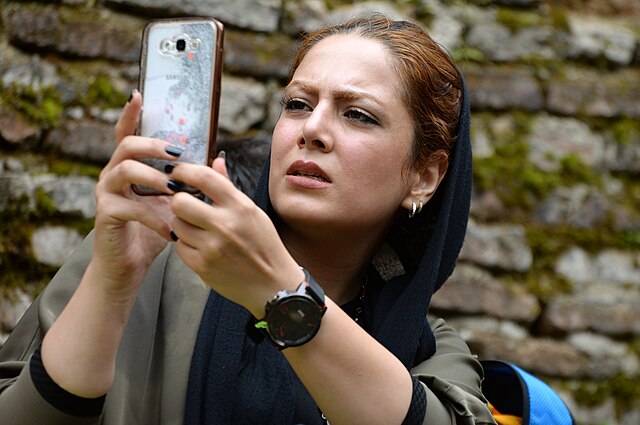Empowerment or repression: Iran’s hijab issue

An Iranian woman partially wearing a hijab in 2017
Jacob Sagers – Protests in Iran last year demanding social reforms have bled over into this spring as the Iranian government is using businesses as an enforcing mechanism for its hijab law. The hijab became a symbol of resistance by activists, students, and civilians as defiance against the theocratic regime last year. The law forces women to wear the hijab in public spaces, and improperly wearing the headscarf or complete non-compliance comes with consequences. The burning of hijabs and removing them in public during last years’ protests has placed Iran in a difficult position as it tries to navigate policy, ideology, and most importantly, its citizens. Businesses now face fines, closures, or arrests for non-compliance.
The ability for the Iranian government to make others to do what they want without force, or ideological power, is vital for its authority and legitimacy. Iran’s theocracy relies on orthodox interpretations of Shia Islam for power, and it permeates nearly all aspects of life. Shia Islam is important because it is highly structured due to its clergy and centralized hierarchy; this is starkly different to Sunni Islam which is more decentralized. Shia influence has been employed as a tool for policy, legitimacy, and action partially due to its effective and sole authority through the connection between religion and the state. However, as many Iranians become more secular, religious influence has waned. Now as the Iranian government grapples with decreasing power over whether women wear the hijab rather than the police alone have been enrolled as enforcers.
Ideological power does not just apply to the scale of a country, but also to individuals. Individuals are often an overlooked scale in geopolitics because state actions dominate headlines. Individual women were instrumental in the protests last year. Videos of defiance against the police made international headlines and fueled demonstrations for weeks. Even if no immediate reform has been adopted, their power and role has forced Iran to switch tactics with domestic policy. Forcing businesses to impose law has also not been completely successful. Mohammed, a café owner, had his business shut down for two days due to non-compliance with the law. However, he reported about the shutdowns that he: “…felt good about it, because this is really good P.R. for us and our business.” If further defiance comes from organizations, rather than just individuals, it poses the question to what lengths will and can Iran enforce its ideology – even on its own citizens.
Picture Credit: Photo distributed under the Creative Commons Attribution-Share Alike 4.0 International license. Source

